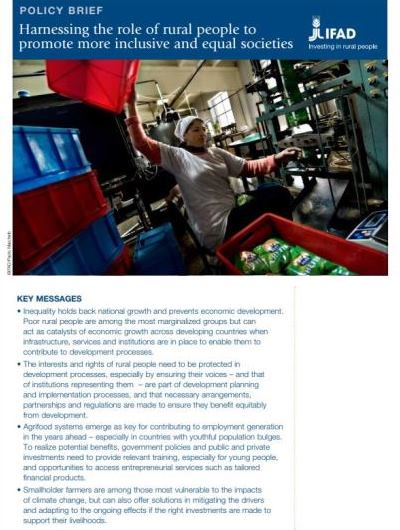Policy brief - Harnessing the role of rural people to promote more inclusive and equal societies
Policy brief: Harnessing the role of rural people to promote more inclusive and equal societies
Inequality holds back national growth and prevents economic development. Poor rural people are among the most marginalized groups but can act as catalysts of economic growth across developing countries when infrastructure, services and institutions are in place to enable them to contribute to development processes.
The interests and rights of rural people need to be protected in development processes, especially by ensuring their voices – and that of institutions representing them – are part of development planning and implementation processes, and that necessary arrangements, partnerships and regulations are made to ensure they benefit equitably from development.
Agrifood systems emerge as key for contributing to employment generation in the years ahead – especially in countries with youthful population bulges. To realize potential benefits, government policies and public and private investments need to provide relevant training, especially for young people, and opportunities to access entrepreneurial services such as tailored financial products.
Smallholder farmers are among those most vulnerable to the impacts of climate change, but can also offer solutions in mitigating the drivers and adapting to the ongoing effects if the right investments are made to support their livelihoods.
